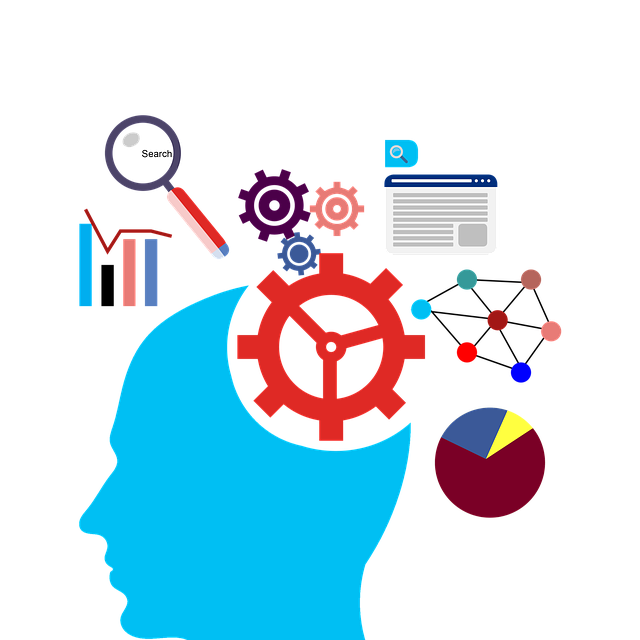In the foodservice industry, Artificial Intelligence (AI) is revolutionizing cybersecurity through predictive maintenance for kitchen equipment. By integrating machine learning algorithms with sensor data from culinary appliances, AI systems can anticipate failures and detect anomalies in real-time, reducing downtime, preventing reactive repairs, and safeguarding kitchen staff. This proactive approach enhances both operational efficiency and cybersecurity by mitigating cyberattacks that exploit outdated or poorly maintained systems.
In today’s digital landscape, Artificial Intelligence (AI) is transforming cybersecurity, offering unprecedented strengths. This article explores the revolutionary power of AI in enhancing security measures, focusing on two key areas: predictive maintenance and kitchen equipment safety. We delve into how AI can forecast potential threats, ensuring robust defenses. Additionally, we examine AI integration in kitchens to prevent failures, thereby improving reliability and worker safety. Looking ahead, AI’s proactive role in cybersecurity is set to redefine protection strategies.
- Unlocking Cybersecurity Strengths with AI Predictive Maintenance
- Enhancing Kitchen Equipment Reliability and Safety Through AI Integration
- The Future of Cybersecurity: AI's Role in Proactive Protection
Unlocking Cybersecurity Strengths with AI Predictive Maintenance

In the dynamic landscape of cybersecurity, where threats are ever-evolving and sophisticated, Artificial Intelligence (AI) is emerging as a powerful ally in fortifying defenses. One of its most promising applications is in AI predictive maintenance for kitchen equipment—a game-changer in the foodservice industry. By leveraging machine learning algorithms, AI systems can analyze vast amounts of data from various sensors installed on culinary appliances. This enables them to predict potential failures or malfunctions before they occur.
With AI predictive maintenance, kitchens can unlock significant strengths in cybersecurity and operational efficiency. Sensors monitor equipment performance, temperature fluctuations, and other critical parameters, feeding this real-time data into AI models. These models learn patterns, identify anomalies, and predict when maintenance or repairs might be needed. This proactive approach not only reduces the risk of sudden equipment failures but also helps to mitigate potential cyberattacks that could exploit vulnerabilities in outdated or poorly maintained systems.
Enhancing Kitchen Equipment Reliability and Safety Through AI Integration

In the culinary industry, where time and efficiency are paramount, integrating AI into cybersecurity measures offers a innovative layer of protection for kitchen equipment. AI predictive maintenance for kitchen equipment is a game-changer, enabling businesses to anticipate potential failures before they occur. By analyzing vast amounts of data from sensors embedded in machinery, AI algorithms can identify patterns indicative of wear and tear or imminent breakdowns. This proactive approach to maintenance significantly reduces downtime, as issues are resolved preventively rather than reactively.
Moreover, AI enhances kitchen safety by monitoring equipment performance in real-time. It can detect anomalies like unusual temperature fluctuations, motor vibrations, or operational deviations, flagging potential hazards before they escalate. This early warning system allows for swift action, ensuring the smooth operation of crucial appliances and safeguarding kitchen staff from accidents related to malfunctioning machinery.
The Future of Cybersecurity: AI's Role in Proactive Protection

The future of cybersecurity lies in proactive protection, and Artificial Intelligence (AI) is at the forefront of this revolution. Traditional cybersecurity methods are largely reactive, responding to threats after they have already occurred. However, AI offers a paradigm shift by leveraging predictive analytics and machine learning algorithms to anticipate potential vulnerabilities before they can be exploited. By analyzing vast datasets from various sources, AI systems can identify patterns indicative of impending cyberattacks.
In the context of kitchen equipment maintenance, AI predictive maintenance techniques can be employed to safeguard these essential assets. Just as AI predicts equipment failures in manufacturing, it can also forecast cybersecurity breaches in networked kitchen appliances. This proactive approach ensures that security measures are not just reactive but actively seek out and mitigate risks, enhancing overall system resilience.
Artificial Intelligence (AI) is transforming cybersecurity, offering innovative solutions like predictive maintenance for kitchen equipment. By leveraging AI, businesses can anticipate and mitigate potential risks, ensuring enhanced reliability and safety in an increasingly digital landscape. This proactive approach to protection is key to staying ahead of evolving cyber threats, making AI a game-changer in the world of cybersecurity. Integrating AI not only strengthens defenses but also optimizes operations, particularly in sectors like food service, where reliable equipment is paramount.
